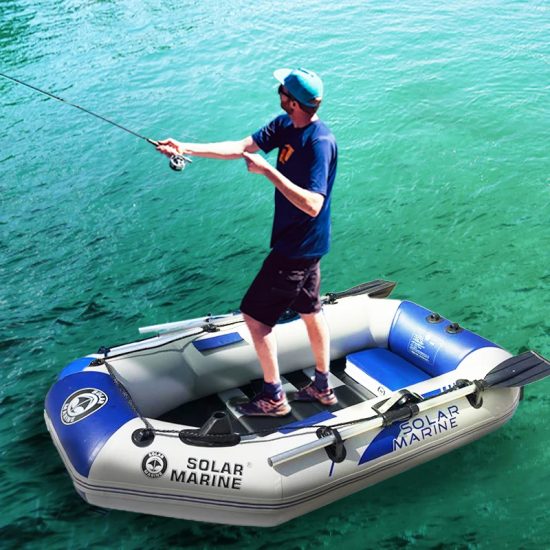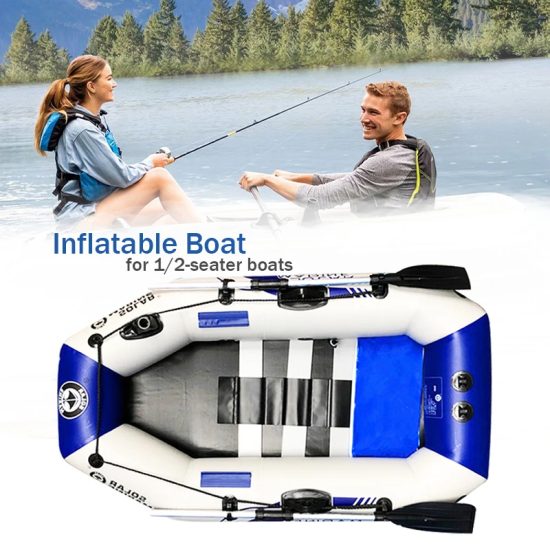When it comes to inflatable boats, the choice of materials significantly impacts their performance, durability, and overall suitability for various applications. Understanding the differences between PVC and Hypalon can guide you in selecting the ideal inflatable boat for your needs.
PVC (Polyvinyl Chloride) Inflatable Boats:
1. Affordability: PVC boats are generally more budget-friendly compared to Hypalon models. This affordability makes them an attractive option for recreational boaters and beginners.
2. Lightweight: PVC boats are lighter in weight, which contributes to their ease of portability and handling. They are convenient for solo handling and transporting.
3. Vulnerability to UV and Abrasions: While PVC is susceptible to damage from prolonged exposure to UV rays and abrasions, modern PVC fabrics often come with UV inhibitors and protective coatings to mitigate these risks.
4. Lower Maintenance: PVC boats typically require less maintenance. Cleaning with mild soap and water and proper storage can help prolong their lifespan.
5. Lifespan: PVC boats generally have a shorter lifespan compared to Hypalon boats, especially in harsher environmental conditions or with frequent use.
Hypalon Inflatable Boats:
1. Durability: Hypalon boats are renowned for their exceptional durability. They resist damage from UV rays, abrasions, chemicals, and extreme temperatures better than PVC boats.
2. Longevity: Hypalon boats have a longer lifespan, making them a preferred choice for professional or commercial use and for boaters seeking a long-term investment.
3. Heavier Construction: Hypalon boats tend to be heavier than PVC boats, which can affect portability and handling, particularly for single individuals.
4. Higher Cost: Hypalon boats are generally more expensive due to their superior durability and longevity. They are often favored by experienced boaters or professionals who prioritize performance and longevity.
5. Superior Resistance: Hypalon exhibits greater resistance to environmental factors and harsh conditions, making it suitable for extended outdoor exposure and challenging terrains.
Conclusion:
Both PVC and Hypalon have their distinct advantages and considerations. PVC boats offer affordability and lighter weight, ideal for casual recreational use. On the other hand, Hypalon boats excel in durability, longevity, and resilience, making them a preferred choice for more demanding applications and conditions.
Ultimately, the choice between PVC and Hypalon inflatable boats depends on your budget, intended use, and the environmental conditions you anticipate encountering. Consider these differences carefully to make an informed decision that aligns with your boating needs and preferences.


